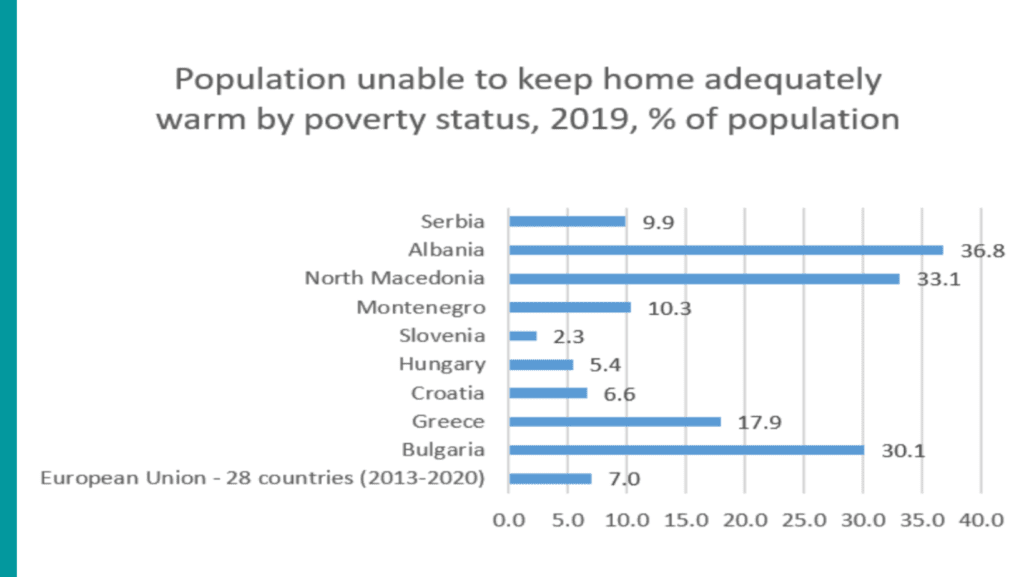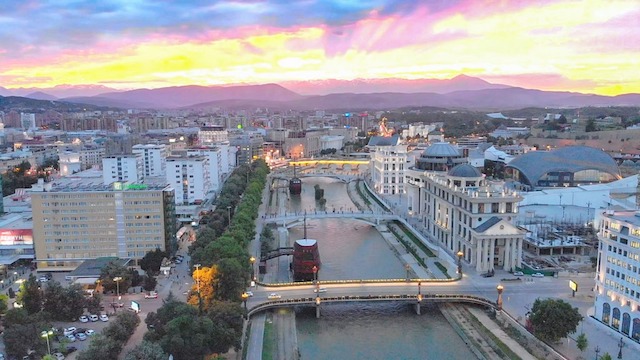Northern Macedonia is strongly affected by energy poverty, and the fact that 61 % of the population uses wood for heating further complicates the situation. And it makes Skopje one of the most polluted cities in Europe.
According to the State Statistical Office (2019) 21.6% of the population in North Macedonia live in poverty and energy poverty in the region is far beyond the EU average. In addition, more than half of the Macedonian population lives in urban areas, with more than 79 % of them living in multi-family housing. It is up to 82 % of the total housing stock in the country that was built before 1991, most of them during the period of mass urbanisation (1946-1989), which was characterised by heavily subsidised energy prices and the use of low-cost, low-quality construction technology. As a result, only 18 % of Macedonian households lived in dwellings with adequate thermal insulation.
Energy Sources in North Macedonia
As natural gas is not available for the Macedonian residential sector, 61 % of households use firewood as their primary source of energy for heating, 29 % use electricity and just over 8 % rely on district heating systems. Consequently, Macedonian forest ecosystems are severely degraded, while Macedonian cities are known to be among the most polluted in Europe. Skopje is the most polluted capital city in Europe with an annual average PM10 concentration of 74 ug/m3 according to the WHO list of 2600 European cities. At the same time, annual CO2 emissions reached 5.5 tonnes per capita in the 2000s, which is close to the per capita level of some industrially developed EU countries and higher than in any other Southeast European country.

Major Energy-Related Challenges
Energy poverty is widespread among Macedonian households, which is related to the relatively high expenditure on energy, outdated and inefficient heating systems, and the low energy efficiency of buildings and appliances. 33.1% of the population is unable to keep home adequately warm (Eurostat, 2019). Energy expenditure therefore accounts for a large part of the already low income level. For those who heat their homes with electricity, the most pressing problem is disconnection from the grid after not paying their energy bills for some time. For others, the most pressing problem is the pollution of indoor and outdoor air from the burning of harmful substances during heating. On the other hand, many households reduce the heating of their homes.
Current Energy Data and Future Prospects
As soon as the North Macedonian project partner Habidom has a bill from the household, the future electricity consumption can be determined and compared. Energy use in North Macedonia is not constant, households use more electricity at times when it is cheap, in the evenings or on Sundays. For example, larger consumers (water heaters, washing machines, dishwashers, etc.) are included in this period whenever possible.
To reduce energy bills, Macedonian households therefore often resort to various energy-saving strategies, including using alternative heating sources (e.g. solid fuels), increasing energy consumption at night and reducing the use of appliances, lighting or the number of heated rooms. Alternatively, households can invest in better insulation or buy more efficient appliances, but this is often too expensive for low-income households. Moreover, the most affected households are often poorly informed about appropriate measures to reduce energy consumption.
